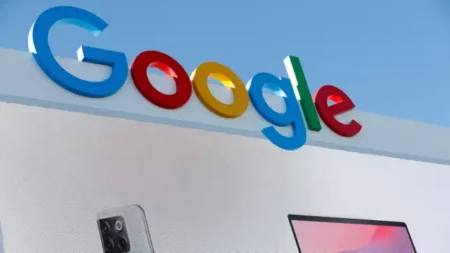Google’s latest innovation in artificial intelligence, an advanced AI-driven search feature, has left publishers worldwide grappling with significant disruptions to their traditional traffic and revenue streams. The new AI search, unveiled last month, uses sophisticated algorithms to generate comprehensive and contextually relevant summaries directly within search results, dramatically altering how users access information.
The AI search, designed to provide users with immediate answers, has been lauded for its efficiency and accuracy. However, publishers are facing an existential threat as the new feature minimizes the need for users to click through to external websites. This shift has led to a precipitous drop in web traffic for many news outlets, content creators, and informational websites, which rely heavily on ad revenue generated by page visits.
“We are witnessing a seismic shift in the digital landscape,” said Susan Miller, CEO of a leading online publishing company. “Google’s AI search is impressive, but it is also diverting a substantial portion of our audience away from our platforms. This threatens our business model and our ability to sustain quality journalism.”
Several publishers have expressed concerns over the lack of transparency and consultation from Google prior to the rollout. Many argue that the tech giant’s new feature siphons off their content without adequate compensation or acknowledgement, echoing past disputes over the use of snippets and headlines in search results.
In response to the growing backlash, Google has stated that it is working on measures to support the publishing industry. A spokesperson for the company said, “We recognize the challenges this innovation poses and are committed to finding solutions that benefit both users and content creators. Our goal is to ensure a balanced ecosystem where quality content continues to thrive.”
Industry analysts suggest that publishers may need to explore new revenue models and diversify their digital strategies to adapt to the changing environment. “This is a wake-up call for the industry,” said Mark Thompson, a digital media consultant. “Publishers need to innovate and find alternative ways to engage their audience and monetize their content beyond traditional ad revenue.”
The ramifications of Google’s AI search are prompting discussions at the highest levels. Several major publishing groups have called for regulatory intervention, arguing that Google’s dominance in the search market gives it unfair leverage over content distribution and monetization. Lawmakers in both the United States and Europe are reportedly examining the situation to determine if new regulations are warranted.
In the face of these challenges, some publishers are already experimenting with subscription models, exclusive content offerings, and partnerships with tech companies to maintain their revenue streams. However, the success of these initiatives remains uncertain as the industry adjusts to the new paradigm.
As the digital publishing industry braces for further disruption, the long-term impact of Google’s AI search remains uncertain. What is clear, however, is that the relationship between tech giants and content creators is at a critical juncture, with the future of digital information and journalism hanging in the balance.
